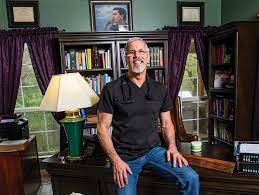Introduction
When I started practicing medicine, my goal was always to provide quality care to every single person who walked through my door. But as time went on, I realized that being a family physician gave me an opportunity to do something even better: provide excellent care for entire families.
Trained To Treat All Ages
As a result, they can provide care for common childhood illnesses and chronic conditions like diabetes and heart disease.
This is especially important if you have an older parent who may need help managing his or her health, a family doctor makes it easy for your parent’s primary care physician to refer to him or her when necessary without having to coordinate multiple appointments with different specialists.
● Highly trained for treating chronic conditions
● They can coordinate care with other specialists, such as cardiologists and endocrinologists, when necessary
● Family doctors can prescribe medications for chronic conditions if they’re not on the list of primary care providers that your insurance company has pre-approved
Preventive Care Is The Key Components Of Family Medicine
Family medicine doctors like Dr Lane Sebring have training in preventive care and can help you live a healthier life plus preventive care includes routine screenings, health education and counseling, management of chronic conditions such as diabetes or asthma and advice on healthy living habits such as diet and exercise. For example:
● A family medicine doctor will recommend that you get your cholesterol checked every five years starting at age 20 or earlier if you have other risk factors
● They’ll also tell you how important it is to eat well-balanced meals with plenty of fruits and vegetables each day especially if they know that your parents had heart disease before they were 40
Part Of The Team Of Patients Medical Specialists
Dr Lane Sebring Family medicine doctors can coordinate the care of patients who have many different specialists in their lives.
They are trained to work with other specialists and understand how to get the most out of health care, including preventive measures, diagnosis and treatment of diseases, and management of chronic illnesses.
They also know how to handle emergency situations such as heart attacks or strokes as well as any number of other life-threatening conditions that may arise during an office visit.
Uncovering The Benefits Of Family Medicine By Dr Lane Sebring
